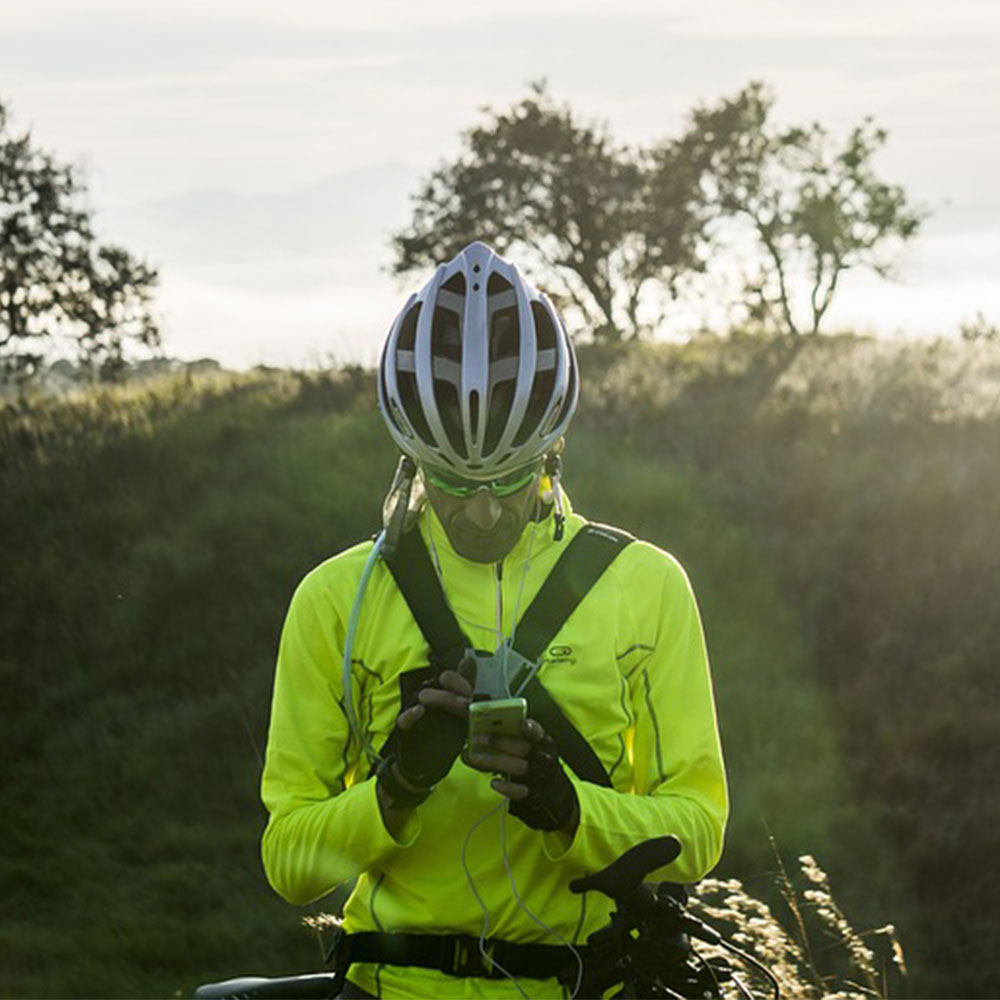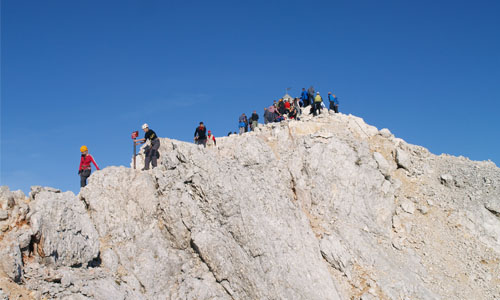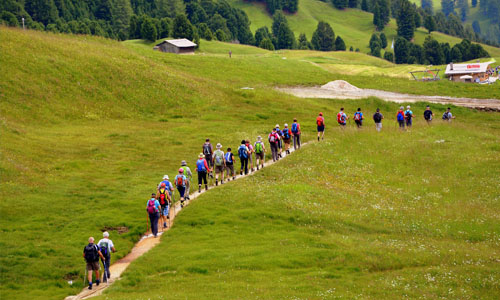5 Questions: Are You Ready For Your Next Adventure?
Author

Chris shares his passion for cycling, hiking, skiing, and climbing from Buxton, in the Peak District. As a blogger for Outdoor Look, Chris shares outdoor tips and indoor tricks to help you get the most out of your time spent outside. When he's not out adventuring he's making videos or trying to keep up with his 4-year-old son.
 It’s always a good thing to plan and actually go out on new adventures: hiking in a new location or in different weather, or going kayaking or climbing for the very first time. In reality, every time you go for an outdoor adventure, something is different. Be it the location, the weather, the company or your fitness level. And I have always believed that it is good practice to be well prepared for anything new.
It’s always a good thing to plan and actually go out on new adventures: hiking in a new location or in different weather, or going kayaking or climbing for the very first time. In reality, every time you go for an outdoor adventure, something is different. Be it the location, the weather, the company or your fitness level. And I have always believed that it is good practice to be well prepared for anything new.
So, when the plan is made and the things are packed, ask yourself the following five questions to determine if you are really ready for this new outdoor adventure before getting out of your home.
1. What New Are You Going To Do?
Have you figured if there is anything new in the outdoor activity you are going to do? If you can answer this question in affirmative, then start preparing yourself for the destination, activity or anything that is new. Increase the degree of difficulty, unfamiliarity or challenge bit-by-bit to reduce the level of risk involved. Get yourself acquainted with all the things related to the activity or destination. If you are going someplace new, you can hire a guide, so that you have a person in the group who knows the place well.
2. Do You Know and Understand The Challenges Involved?
Ask yourself a question, “What can go wrong and what will be the consequence?” There are a lot of things that can go wrong during an outdoor trip. Some of the most common mishaps include frostbite, falling off a cliff, getting hit by a rock fall, etc. These things often happen not because of the irresponsibility of the victims, but because they didn’t understand the hazards and weren’t prepared for them.
Talk to the people more experienced in the destination you are going to, make a note about the weather forecast, search the type of accidents that have happened in the past to fully understand the possible hazards. Explain everything that you know to the newcomers of the group to give them a better understanding of the hazards involved.
3. Is Everyone In The Group On The Same Page?
The person with the most experience gets to make the plan and the rest of the party just follows the plan like sheep. This is usually the case with people going outdoors. Everyone passes the hectic job of planning to the experienced one of the group without thinking that the decisions that person makes will be dependent on their understanding and skills.
 If you are the leader of the group, make everyone else familiar with the plan and clear out all the confusion, if any. If you are merely a common participant of the group, make sure that you ask the leader about the plan, understand it completely and are comfortable with it.
If you are the leader of the group, make everyone else familiar with the plan and clear out all the confusion, if any. If you are merely a common participant of the group, make sure that you ask the leader about the plan, understand it completely and are comfortable with it.
4. Are You Prepared For Everything?
"Everything" doesn’t mean that you have to carry extra clothing, firewood, ropes, etc. Just be prepared for a weather little worse than what it says on the forecast, get yourself in a fit physical state so that if the trail is a bit tough you can easily accommodate the change, and carry a first-aid kit with all the necessary medication just in case someone falls ill or gets injured.
5. What Is The Plan B?
What if the weather goes too bad, or someone feels ill at the beginning of the trail? Having a plan B never hurts, especially when it is better to fall back than keep moving. Sometimes people do not give heed to the warning signs simply because they have no alternative.
Author

Chris shares his passion for cycling, hiking, skiing, and climbing from Buxton, in the Peak District. As a blogger for Outdoor Look, Chris shares outdoor tips and indoor tricks to help you get the most out of your time spent outside. When he's not out adventuring he's making videos or trying to keep up with his 4-year-old son.
- Speed Up Your Post-Hike Recovery with These 6 Essential Tips
- Cycling through Tranquil Roads and Coastal Views on the Isle of Wight
- The Essential Guide to Hiking Safety: 5 Tips Every Hiker Should Know
- Run Smart, Run Strong: Your Guide to Injury-Free Running
- Embrace Biking: Essential Tips for Beginners
Categories
- Sport (28)
- Product Reviews (3)
- Team Outdoor Look (7)
- Mike Wild (2)
- Mike Payton (2)
- Suse Hammond-Pears (3)
- Snowboarding (12)
- Latest Offers (105)
- Shop Talk (1)
- Competitions (7)
- Walking (413)
- Lifestyle Fashion (8)
- Travel (86)
- Kit Guides (176)
- Workwear Clothing (6)
- Safety Workwear (4)
- Health/Fitness (289)
- Skiing (91)
- Great Outdoors (1316)
- Cycling (92)
- January 2025
- December 2024
- November 2024
- October 2024
- September 2024
- August 2024
- July 2024
- June 2024
- May 2024
- April 2024
- March 2024
- February 2024
- January 2024
- December 2023
- November 2023
- October 2023
- September 2023
- August 2023
- July 2023
- June 2023
- May 2023
- April 2023
- March 2023
- February 2023
- January 2023
- December 2022
- November 2022
- October 2022
- September 2022
- August 2022
- July 2022
- June 2022
- May 2022
- April 2022
- March 2022
- February 2022
- January 2022
- December 2021
- November 2021
- October 2021
- September 2021
- August 2021
- July 2021
- June 2021
- May 2021
- April 2021
- March 2021
- February 2021
- January 2021
- December 2020
- November 2020
- October 2020
- September 2020
- August 2020
- July 2020
- June 2020
- May 2020
- April 2020
- March 2020
- February 2020
- January 2020
- December 2019
- November 2019
- October 2019
- September 2019
- August 2019
- July 2019
- June 2019
- May 2019
- April 2019
- March 2019
- February 2019
- January 2019
- December 2018
- November 2018
- October 2018
- September 2018
- August 2018
- July 2018
- June 2018
- May 2018
- April 2018
- March 2018
- February 2018
- January 2018
- December 2017
- November 2017
- October 2017
- September 2017
- August 2017
- July 2017
- June 2017
- May 2017
- April 2017
- March 2017
- February 2017
- January 2017
- December 2016
- November 2016
- October 2016
- September 2016
- August 2016
- July 2016
- June 2016
- May 2016
- April 2016
- March 2016
- February 2016
- January 2016
- December 2015
- November 2015
- October 2015
- September 2015
- August 2015
- July 2015
- June 2015
- May 2015
- April 2015
- March 2015
- February 2015
- January 2015
- December 2014
- November 2014
- October 2014
- September 2014
- August 2014
- July 2014
- June 2014
- May 2014
- April 2014
- March 2014
- February 2014
- January 2014
- December 2013
- November 2013
- October 2013
- September 2013
- August 2013
- July 2013
- June 2013
- May 2013
- April 2013
- March 2013
- February 2013
- January 2013
- December 2012
- November 2012
- October 2012
- September 2012
- August 2012
- July 2012
- June 2012
- May 2012
- April 2012
- March 2012
- February 2012
- January 2012
- December 2011
- November 2011
- October 2011
- September 2011
- August 2011
- May 2010
- April 2010
- March 2010
- February 2010
- January 2010
- November 2009
- October 2009
- September 2009
Submit a Comment